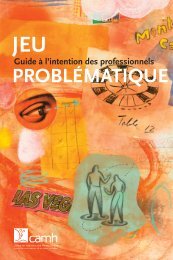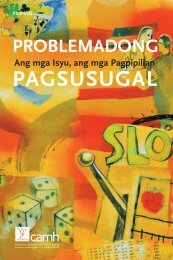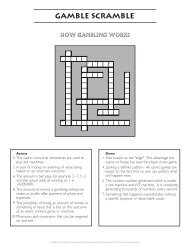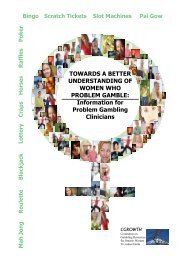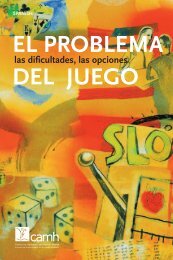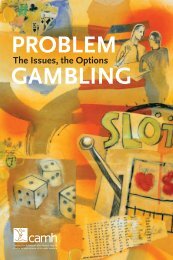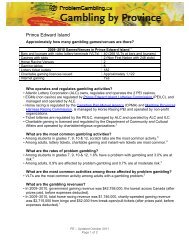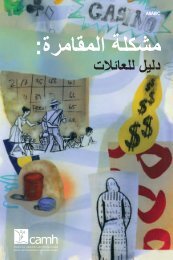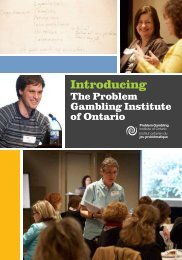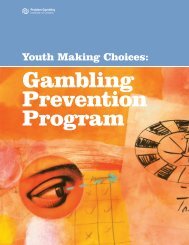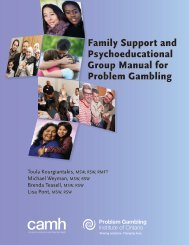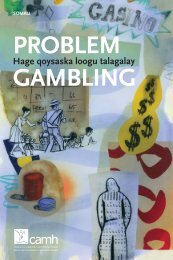Problem Gambling: A Guide for Helping Professionals
Problem Gambling: A Guide for Helping Professionals
Problem Gambling: A Guide for Helping Professionals
Create successful ePaper yourself
Turn your PDF publications into a flip-book with our unique Google optimized e-Paper software.
<strong>Problem</strong> <strong>Gambling</strong>: A <strong>Guide</strong> <strong>for</strong> <strong>Helping</strong> <strong>Professionals</strong><br />
There are, however, a number of ways you can ask gambling questions<br />
as a routine part of your assessment process.<br />
• Ask about recreational activities: “What do you do <strong>for</strong> fun Do you go<br />
to the movies, night clubs, or the racetracks” “Do you ever go to casinos<br />
or other gambling venues” When asking questions, assume that<br />
your client participates in some type of gambling: “How often do you<br />
buy lottery tickets” Avoid moral judgments.<br />
• “How much time and money do you spend on these activities” You<br />
may find it difficult to ask clients about how they spend their money<br />
if this is not what you usually do. Many North Americans believe that<br />
it is rude to ask other people about money. You can assure your clients<br />
that problems with gambling are common and so you ask all people<br />
seeking your assistance about it.<br />
• If you identify gambling as a concern, ask about debts to employers,<br />
family, friends, co-workers, casinos, bookies or loan sharks. Ask if RRSPs<br />
or savings have been cashed in to cover gambling losses. This will let<br />
you know whether the client should consider financial counselling.<br />
• Consider using the Canadian <strong>Problem</strong> <strong>Gambling</strong> Index (cpgi) which<br />
is provided in this guide.<br />
• If you suspect that a client is having problems with gambling, keep<br />
relevant print in<strong>for</strong>mation on gambling counselling in the client’s file<br />
and offer in<strong>for</strong>mation at opportune times.<br />
<strong>Problem</strong> <strong>Gambling</strong> Is a Family <strong>Problem</strong><br />
Consider including the client’s partner or family in the discussions,<br />
or arrange to meet with the family separately. Often family members<br />
are more willing to discuss the impact of gambling than the person<br />
who gambles. Your assessment of a client’s gambling problem may<br />
be based on what a family member tells you.<br />
Many partners are unaware that gambling is a problem until there is a<br />
crisis. Clients may not want their partners to know everything that is<br />
going on. Try to balance the idea that secrecy enables gambling with<br />
the need to build trust and your responsibility to respect confidential<br />
in<strong>for</strong>mation.<br />
28



